
Answer:
There are a number of supplements that may modestly reduce pain or improve other symptoms of osteoarthritis (inflammation caused by damage or "wearing away" of cartilage in joints) or rheumatoid arthritis (an autoimmune disease that causes joint pain, stiffness and inflammation). Use the links below for more information, including dosage, about supplements for each type of arthritis.
For osteoarthritis
Might help
SAMe has been shown to be effective as a treatment for osteoarthritis and associated joint pain, stiffness, and inflammation.
Ginger may modestly reduce pain and disability from osteoarthritis.
Several small studies suggest collagen hydrolysate may reduce pain associated with osteoarthritis. A branded form of undenatured type II collagen, UC-II, has been found to improve knee stiffness and/or pain. Similarly, eggshell membrane, which naturally contains type I collagen, elastin, and small amounts of glucosamine and chondroitin, also seems to modestly reduce pain and stiffness, and improve knee function, among people with osteoarthritis, although it does not seem to improve flexion or attenuate reduction in joint spacing.
Boswellia has been associated with significant pain reduction and improved physical function in people with osteoarthritis.
There is also evidence that ashwagandha extract can reduce pain, stiffness and disability in people with knee osteoarthritis.
A branded enzyme supplement containing bromelain, trypsin and other ingredients, Wobenzym, was found in one clinical study to reduce pain from knee osteoarthritis.
There is mixed evidence that the omega-3 fatty acids EPA + DHA from green-lipped mussel (such as in Omega XL) may be helpful. Similarly, there is mixed evidence for white willow (Schmid, Phytother Res 2001; Biegert, J Rheumatol 2004).
Minor improvement in knee osteoarthritis has been reported after several months of taking krill oil or krill oil in combination with astaxanthin and hyaluronic acid (Hill, Nutrients 2023).
Higher fiber intake from the diet is related to a lower risk of suffering symptoms (i.e., pain, aching, stiffness) from knee osteoarthritis, although not with improvements evident on radiographs. Risk of symptoms was 30% to 61% lower among people consuming about 22 to 27 grams of fiber daily compared to those consuming about 9 to 14 grams (Dai, BMJ 2017).
Getting adequate amounts of magnesium from the diet has been linked with lower risk and severity of knee osteoarthritis, but it is not known if taking magnesium has this benefit.
Supplementing with black seed oil may slightly reduce pain and inflammation in people with knee osteoarthritis. Applying black seed oil topically doesn't seem to provide much benefit.
Broccoli contains compounds (glucoraphanin and sulforaphane) shown to have anti-inflammatory effects in animal and laboratory studies and which may have a limited effect on knee pain in people with osteoarthritis (Davidson, Arthritis Rheum 2013; Kong Arthritis Rheum 2010). A preliminary study among 23 men and women (average age 66) with moderate to severe knee osteoarthritis showed that those who consumed 1¼ cups of broccoli soup high in glucoraphanin (20 micromoles ~ equivalent to 225 grams or about the amount in 8 ounces of broccoli) four times per week for three months had a small but clinically meaningful decrease of 4.2 points in self-reported knee pain on a scale of 0 to 20 compared to a 1.9 point decrease among those given a placebo soup. However, the broccoli soup did not decrease use of pain medication (such as ibuprofen) or knee stiffness, or improve knee function, compared to placebo (Davidson, medRxiv 2024 -- preprint). There do not appear to be studies on the effects of glucoraphanin or broccoli extract supplements on osteoarthritis in people.
Might not help
Avocado and soy unsaponifiables (ASUs) (fat-soluble compounds extracted from avocado and soy) have been promoted to reduce joint pain and stiffness in people with knee osteoarthritis, but the evidence is mixed. ASUs do not seem to reduce pain in people with hip osteoarthritis.
Evidence supporting the benefit of hyaluronic acid for osteoarthritis is limited and mixed.
Research suggests that vitamin D supplementation does not benefit osteoarthritis of the knee in people not deficient in vitamin D, but may help those who are deficient in vitamin D, particularly when taken for more than one year.
Although tart cherry juice has been found to reduce markers of inflammation, it does not appear to reduce pain in people with osteoarthritis.
Glucosamine and chondroitin are popular supplements for joint health and some early clinical research suggested a benefit, but more recent and larger clinical studies have tended to show little or no benefit for osteoarthritis of the knee.
Taking 4 grams of modified citrus pectin (PectaSol-C, by EcoNugenics, Inc) did not reduce blood markers of inflammation or knee pain, or improve knee function compared to placebo when taken twice daily for 12 weeks in a clinical trial among 43 men and women (average age 64) with mild to moderate knee osteoarthritis (Andrews, Contemp Clin Trials Commun 2020). (Be aware that MPC may cause diarrhea in some people).
MSM is a common ingredient in joint pain supplements, although its effectiveness has not been well established.
Vitamin B-5 does not appear to be beneficial for osteoarthritis.
For rheumatoid arthritis
Might help
Omega-3 fatty acids EPA + DHA from fish oil may help reduce the risk of developing rheumatoid arthritis, or treat symptoms, especially in the early stages of the disease, but do not appear to slow the progression of the disease.
A branded liquid form of undenatured type II collagen, Vital 3, may modestly improve symptoms of rheumatoid arthritis when taken along with standard treatments.
Cinnamon may help reduce pain and the number of swollen and tender joints in people with rheumatoid arthritis who are taking disease-modifying antirheumatic drugs.
One small study suggests that garlic supplementation may reduce the number of tender joints, but not the number of swollen joints, in women with rheumatoid arthritis.
There is limited evidence vitamin E may reduce discomfort caused by rheumatoid arthritis.
High-dose potassium (about 5 grams or more daily) may modestly reduce joint pain in people with rheumatoid arthritis.
Vitamin B-5 may reduce morning stiffness, disability and pain.
Getting adequate (but not excessive) amounts of magnesium from the diet has been linked with lower risk of rheumatoid arthritis, but it is not known if taking magnesium as a supplement is beneficial.
A study in Iran among 45 people (average age 47) with moderate to severe rheumatoid arthritis showed that adding propolis (a resinous material made by bees and sometimes referred to as "bee glue") and bee pollen to standard drug treatment reduced some markers of inflammation more than standard treatment alone. The supplement was given as 1,000 mg of "Iranian propolis" consisting of 340 mg of propolis extract (standardized to 200 mg of polyphenolic compounds and 134 mg of flavonoids) and 660 mg of bee pollen and oats daily for 12 weeks. Standard medication for rheumatoid arthritis was methotrexate, hydroxychloroquine, and prednisolone. Adding the propolis and bee pollen significantly reduced levels of high-sensitivity C-reactive protein (a marker of inflammation) by 0.89 mg/L and levels of MCP-1 (a protein that may worsen joint inflammation) by 55.30 pg/mL compared to a reduction of only 0.15 mg/L and 18.45 pg/mL in the group receiving only medical therapy with a placebo (consisting of corn starch). People in the propolis/bee pollen group also showed significant reductions in total cholesterol (-19.85 mg/dL), low-density lipoprotein (LDL or "bad") cholesterol (-21.12 mg/dL), and triglycerides (-6 mg/dL), and these reductions were significant compared to the placebo group, but there was no significant reduction in systolic or diastolic blood pressure (Maddahi, Phytother Res 2023). A weakness of the study, however, is that it did not report changes in erythrocyte sedimentation rate (ESR — a common blood test for rheumatoid arthritis) or in patient-reported arthritis symptoms. More research is needed to confirm the possible benefit of propolis for this condition.
Might not help
In women, low levels of vitamin D are associated with a higher risk developing rheumatoid arthritis, although it's not clear if supplementing with vitamin D in people who are not deficient has any benefit.
Similarly, low selenium levels have been associated with the development of rheumatoid arthritis — although selenium supplements don't seem to help rheumatoid arthritis once it has developed.
Drinking coffee, particularly in moderation, does not seem to be linked with the risk of rheumatoid arthritis. However, if you are taking the immunosuppressive drug methotrexate for rheumatoid arthritis, be aware that large amounts of caffeinated coffee might reduce the effectiveness of methotrexate.
For osteoarthritis and rheumatoid arthritis
Might help
Supplements that may be helpful for both types of arthritis include curcumin, cat's claw and rose hips (a source of vitamin C and bioflavonoids) (Moura, Phytother Res 2017; Christensen, Osteoarthritis Cartilage 2008).
Might not help
Olive oil has an anti-inflammatory effect; however, it would be difficult to consume enough olive oil to provide relief comparable to a medication such as ibuprofen.
For unspecified joint pain
Might help
Palmitoylethanolamide (PEA) has been shown to moderately reduce symptoms in people with joint pain when used short-term, but it is unknown whether PEA is beneficial when used long-term.
The supplement Zyflamend (by New Chapter) is promoted for pain relief and joint support. Although laboratory research suggests it might help reduce inflammation, Zyflamend does not appear to have been evaluated in any clinical trials for arthritis or other types of joint pain. A laboratory study showed that Zyflamend can block the activity of COX-2, an enzyme involved in inflammation. This enzyme is also targeted by non-steroidal anti-inflammatory drugs (NSAIDs) such as ibuprofen and naproxen. However, the laboratory study also showed that, like nonselective NSAIDs, Zyflamend can also inhibit the activity of COX-1, an enzyme involved in protecting the lining of the stomach and intestines and contributing to blood clotting (Bemis, Nutr Cancer 2005). Zyflamend contains 10 botanical extracts (rosemary leaf, turmeric, ginger, holy basil leaf, green tea leaf, hu zhang (Japanese knotweed) root, Chinese goldthread root, barberry root, oregano leaf, and Chinese skullcap root). Zyflamend has been reported to cause gastrointestinal side effects such as heartburn, bad taste in mouth, and diarrhea (Capodice, J Soc Integr Oncol 2009).
Join today to unlock all member benefits including full access to all CL Answers and over 1,400 reviews.
Join NowAlready a member? Sign In Here.
Join now at www.consumerlab.com/join/

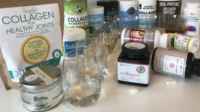

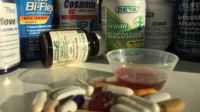
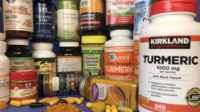
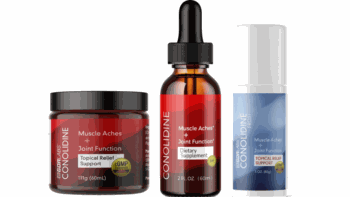
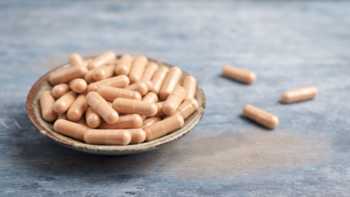
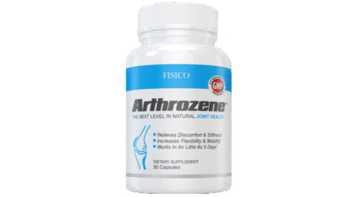


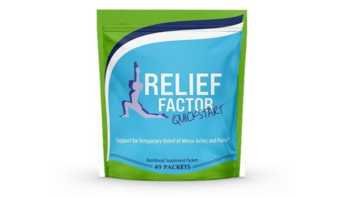


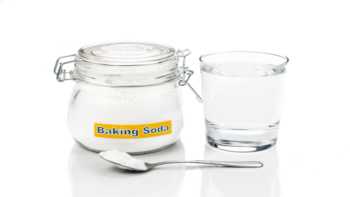

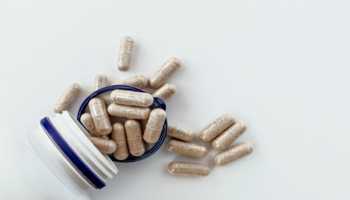

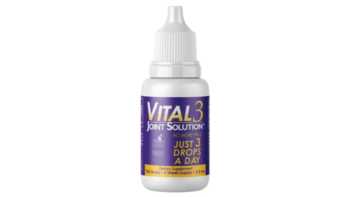
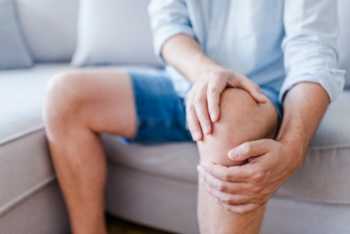
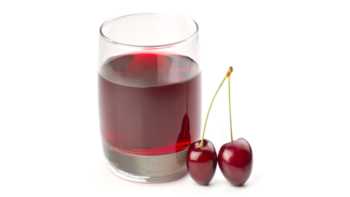
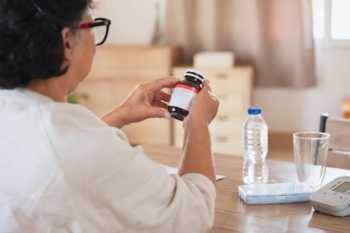







Submit your comment
This feature is restricted to active members.
Join now to add comments and get all member benefits, including over 1,400 reviews.
Join NowAlready a member? Sign in here.